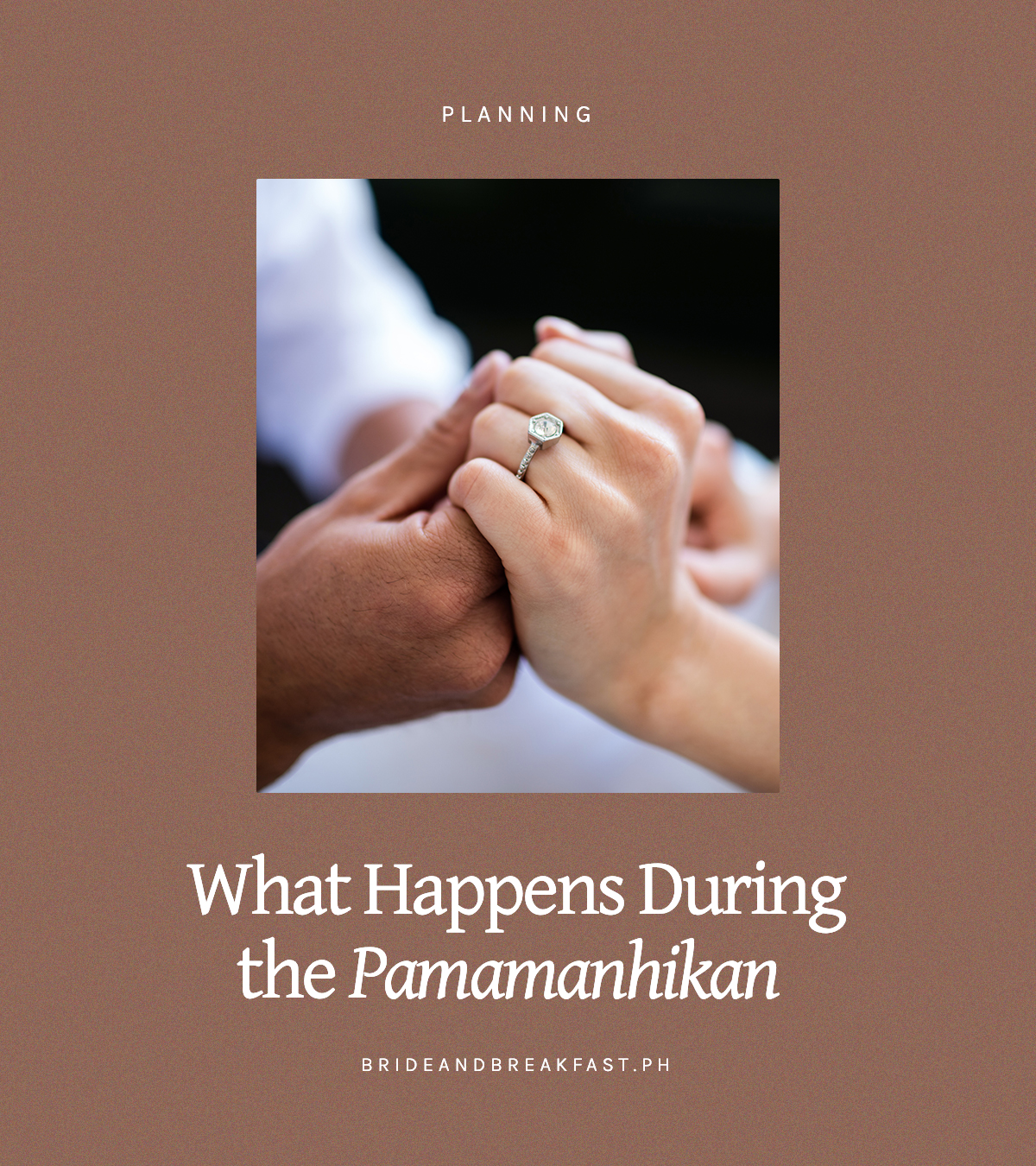Every culture has their own set of wedding traditions. Needless to say, Filipinos have a wealth of wedding traditions carried out before, during, and after the wedding ceremony itself. Interestingly, there might even be as many wedding traditions as the number of provinces in the Philippines! One of these age-old traditions that is still alive up to this day is the pamamanhikan. If you’re a newly-engaged couple, you would want to make time for this in your wedding preparation timeline.
What exactly is pamamanhikan and how is it usually carried out? Read on to find out!


The word pamamanhikan takes its roots from panhik, a Filipino word which means “to take upstairs.” Back in the olden days when typical Filipino houses were usually elevated, the groom would take the stairs to the bride’s house to ask her parents for her hand in marriage. Nowadays, the groom and bride-to-be sets the date and time for the pamamanhikan. The groom’s family brings or sponsors the food to share for lunch or dinner. Native food from the province or the family’s specialty is the one usually served on the table. A more modern take on this is a catering service or a reservation in a restaurant.

Usually, the pamamanhikan is the first time the groom’s family and the bride’s family meet. There is no set rule about who are included in the pamamanhikan. Depending on the couple, the event may just be attended by their immediate families, or their extended families.

The highlight of this tradition is the groom asking for the blessing from the bride’s parents. He declares his intentions for his bride and the parents bless them with their approval.

The groom and bride-to-be come prepared with their notes or presentation during the pamamanhikan. Here, they talk about their wedding plans: the date, the time, the church or venue, and the number of guests. They can even talk about particulars on the ceremony and reception such as the theme and attire. This is also the perfect time for them to communicate their expectations on their wedding day.

As you share your wedding plans, this is also a good opportunity to open up the wedding budget. Approach this conversation thoughtfully and graciously. Parents from either side may want to contribute financially for specific items. Just be honest and clear about what their role and contribution will be for the wedding so as not to cause any misunderstanding. Talk about how you plan on paying for the wedding and what areas you might need help with. If you wish to pay for the wedding yourselves without assistance then bring this up in the conversation, and give options for how else your parents can help out.

Since the key persons in their lives are gathered, the groom and bride-to-be also communicate equally important details of their marriage plans. Where will they reside? What will be their new work arrangements? The couple can be as generous or conservative with the details they are ready to share regarding this matter.

While the groom and bride to be take the center stage in this event, their elders are also given importance by allowing them to share their marriage tips and advice. They usually speak from experience, and their advice on arguments, finances, and everyday decisions will certainly help the couple navigate in the new territory they will enter.









